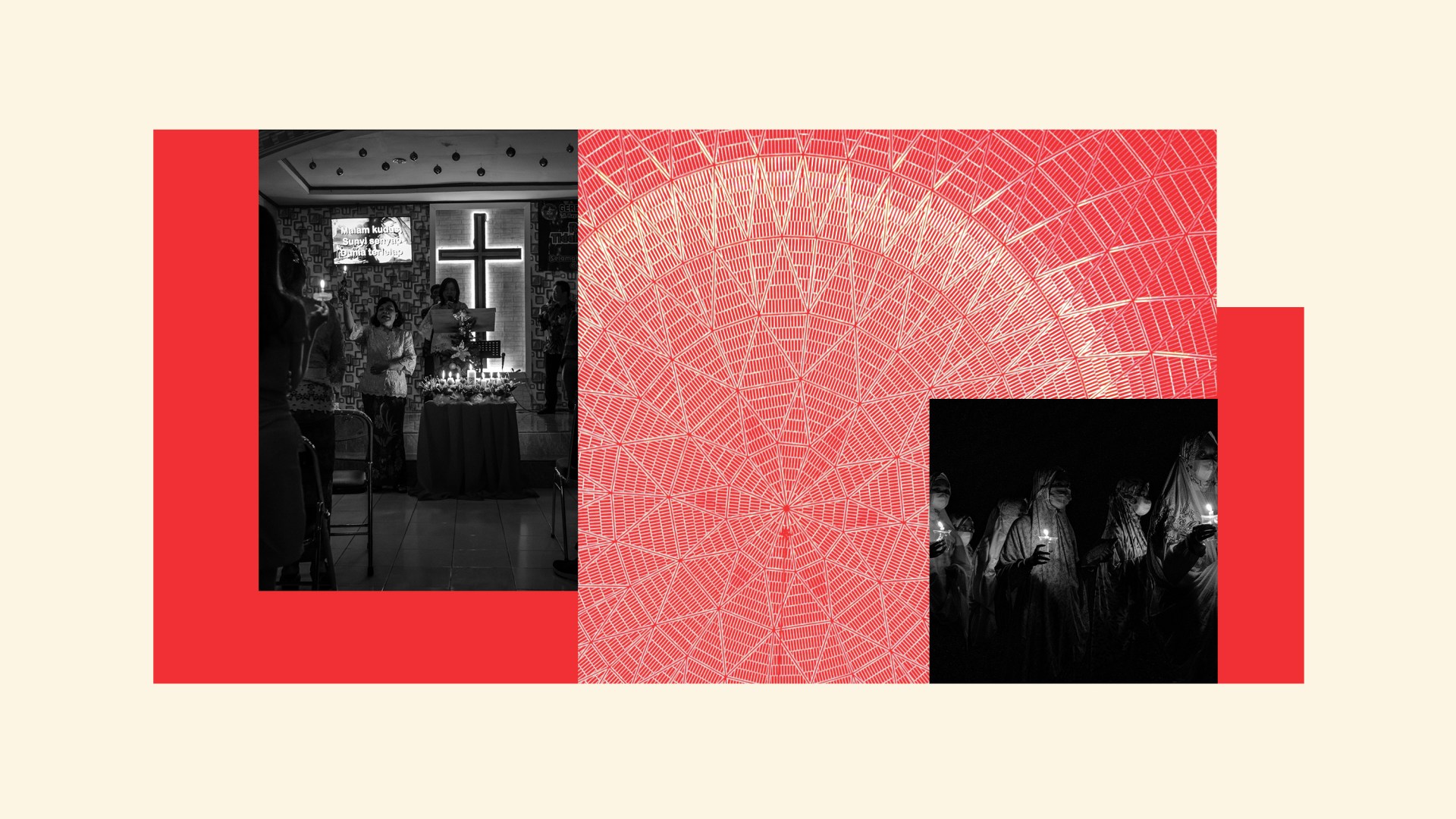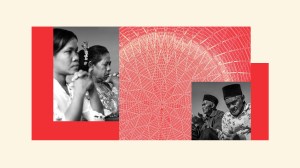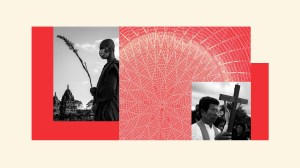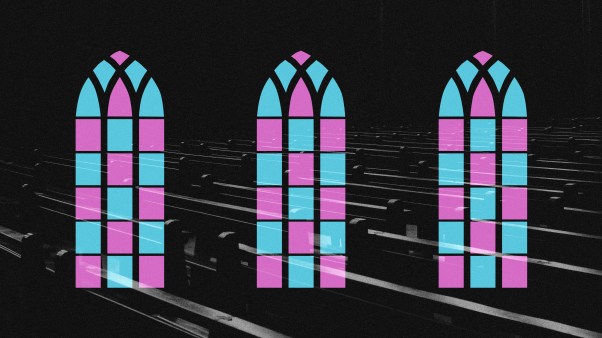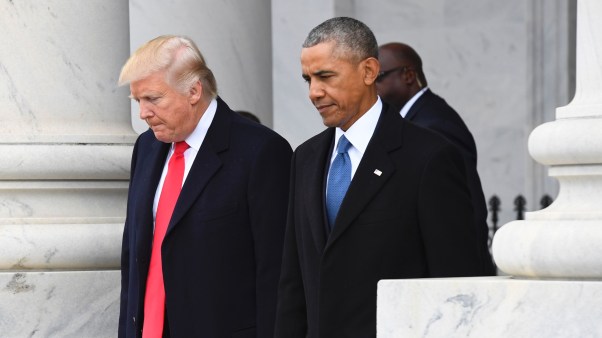In this series

The relationship between “religious nationalism” and xenophobia in Indonesia has garnered attention in recent years. We asked a panel of six Indonesian leaders—three Muslims and three Christians—what can Muslim and Christian communities do to overcome these differences and seek the flourishing of Indonesia?
Muslim respondents:
Halim Mahfudz: In Indonesia, xenophobia is less related to religious or ethnic issues and more tied to economic concerns. It is primarily driven by economic jealousy toward other groups due to governance models during the previous presidents, which exacerbated economic disparities. [Discrimination against Chinese ethnic communities by pribumi, or indigenous communities, has long existed, especially as Chinese Indonesians own most of the large conglomerates in the country.]
This is what we are trying to address. In Islamic boarding schools, we attempt to foster relationships with different people groups, including Chinese Indonesians, and bridge communication gaps.
In Jombang where I live, I have many friends from various religious backgrounds, and interfaith relations run smoother. Our schools are also actively engaged in interfaith dialogue activities, not only within the country but also with schools in other countries such as India and Malaysia. I speak extensively about enhancing interfaith dialogue without asking, “What religion do you belong to?” It’s not about that anymore, but it’s about how we can build world peace and improve the well-being of all humanity.
Inayah Rohmaniyah: Through education and increased historical awareness, critical thinking and embracing differences, there is no need to fear the presence of foreign nations or other religions.
At the Islamic university where I teach, I am an advocate for interfaith dialogue. Nuns often come to our campus, and I also welcome lecturers from Protestant and Catholic groups to teach at our campus. I also travel to various regions in Indonesia, meeting with schoolteachers who are agents of change by instilling traditions and knowledge in students. We do not encounter this phenomenon of fear.
Although they may be suspicious of other religions, when they communicate and interact with followers of different faiths, the fear dissipates and the walls of separation crumble. They can even collaborate to create joint programs between Muslims and non-Muslims.
Fear always exists due to hoaxes and social media. There’s a debate in the Islamic academic world where some believe that the Western world is constantly assessing us, looking down upon us, and even wishing to destroy us. However, in a world of advancing technology, we must connect with many people and foster interreligious engagement. Otherwise, we will be left behind.
Amin Abdullah: In Islam, one of the ultimate goals is to protect the world’s religions, not only Islam. This is a message that needs to be emphasized and reinforced. Another primary goal is to protect human dignity, which can be developed into human rights, including the freedom of religion.
This is a collective task that requires more than just strengthening religious ideologies, but also reinforcing Pancasila. After the Reform era, when there was unrestrained freedom of expression that led to an increase in radical ideas, Pancasila was temporarily removed from the school curriculum. It was only in 2003–2004 that it was reintroduced with a more effective approach, particularly addressing issues of religious tolerance and discrimination.
Within the government, it’s important to implement religious moderation, emphasizing the concept of “The Middle Path of Islam.” However, the religious moderation program seems to still focus on teaching Muslims about their own religion to prevent violent acts, extremism, and fundamentalism. These efforts have not significantly progressed toward religious freedom and belief.
To maintain a harmonious religious life, in the last three years our government agency [Pancasila Ideology Development Agency] has collaborated with various civil societies to train 6,000 Islamic and Christian religious teachers in the literacy of cross-religious cultural life.
Christian respondents:
Tantono Subagyo: We have interfaith dialogues, but their impact is limited as they mainly involve academia. Education is the key. For instance, citizenship education starting from childhood and visits to various places of worship to foster tolerance are some ways to prevent xenophobia. The Christian community must strive to be inclusive and participate in the nation’s education by establishing schools open to children of all religions, fostering tolerance from an early age.
Christians can also adopt local culture, as exemplified by the Catholic Church in Yogyakarta, which incorporates gamelan [traditional percussion instruments] into the Mass, organizes macapatan [singing Javanese traditional poetry], and translates the Bible into local languages.
Christians can also love their neighbors by following God’s call to be an agent of social change by advocating for human rights, helping the poor and oppressed, and caring for the environment (Mic. 6:8; James 1:27; 2:14–17).
Ferry Mamahit: Christians can use media and digital platforms to disseminate positive narratives about diversity and educate the public about religious freedom. It is necessary to integrate Christian values with patriotism and emphasize the harmony between the two. Encouraging active participation in national activities, involvement in humanitarian projects, and the preservation of local culture can also enrich the experiences of young people and cultivate a love for their homeland.
Farsijana Adeney Risakotta: Tensions between Muslims and Christians have existed since the colonial era. However, the founding fathers of the nation collaborated to build Indonesia within the context of the diverse cultural, ethnic, and religious realities that have become strengths for this archipelagic nation.
With a prominent female Muslim leader, I coauthored a chapter in a book titled Shared Words between Muslims and Christians that advocates for women to interpret religious teachings.
The book underscores the belief that the two major world religions, Islam and Christianity, should collaborate to bring about peace and social justice. Indonesia is a country that holds great promise for grassroots efforts and religious organizations to engage in positioning religion as a path to peace, goodness, and progress for civilization and the sustainability of the Earth.
Read our panelists’ bios in the series’ lead article, Parsing Pancasila: How Indonesia’s Muslims and Christians Seek Unity. (Other articles in this special series are listed to the right on desktop or below on mobile.)

